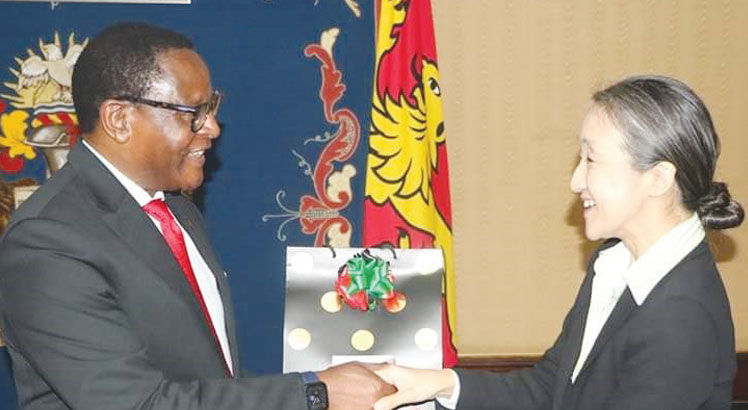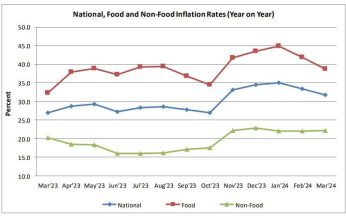IMF programme mixed on targets
The International Monetary Fund (IMF) says Malawi has met implementation challenges during the first review of the Staff Monitored Programme with Executive Board Involvement (PMB), which gives hope for the country’s to qualify for the Extended Credit Facility (ECF).
In a statement dated May 22 2023 released after the IMF team held discussions with Malawi Government authorities from May 16 to 22, the mission’s chief Mika Saito said performance under the PMB based on end-December 2022 targets was mixed.
She said this partly reflects implementation challenges linked to the fact that the macroeconomic adjustment programme was put in place late in the fiscal year.
Said Saito: “It was, thus, difficult to reverse course on government spending, and in turn, money growth and foreign exchange reserve accumulation.
“The authorities are committed to taking the necessary steps to deliver on the agreed programme targets and objectives, including through strong corrective actions.”
She said Malawian authorities should continue to work closely with their debt advisers to achieve tangible and expedited progress on debt restructuring process in line with published strategy that underpinned the PMB request.

after their meeting in Lilongwe
Treasury data shows that as at end December 2022, total public debt reached K7.9 trillion, representing 69.93 percent of the gross domestic product pegged at K12 trillion.
Out of this stock, K4.43 trillion is domestic debt, which is 114 percent of the total budget while K3.47 trillion is external debt, an equivalent of 90 percent of the total budget.
But Saito said the IMF team will continue virtual discussions to pin down modifications of the programme targets to reflect negative shocks from Cyclone Freddy, which hit Malawi in mid-March, causing loss of lives, displacement of families and destruction of infrastructure and crops.
Among others, the PMB, approved in November 2022 together with a disbursement of $88.3 million (about K92 billion) under the Rapid Credit Facility Food Shock Window, demands that the country resolves economic challenges such as rising inflation rate, build foreign exchange reserves and align the foreign exchange rate as well as restructure the debt.
Minister of Finance and Economic Affairs Sosten Gwengwe was yet to respond to our questionnaire by press time at 6pm yesterday, but he is on record as having said that to deal with the country’s debt sustainability, Treasury is engaging its creditors to restructure debts.
But former minister of Finance Joseph Mwanamvekha said the assessment by the IMF indicates that authorities have failed to meet the PMB targets which, if left unchecked, could spell doom for majority of Malawians.
Malawi University of Business and Applied Sciences associate professor of economics Betchani Tchereni said the outcome of the assessment was expected as the country’s adoption of the a macroeconomic adjustment late in the fiscal year could not give full results.
He said: “It is my hope that the IMF will see the good efforts which government has been undertaking.
“We believe that given the circumstances, the ECF although really small in value, is a lifeline for our balance of payments challenges.”
Economic experts credit ECF as a more reliable programme that provides financial assistance to countries with balance of payment problems.
Malawi has been seeking a new ECF after cancelling the previous arrangement in September 2020 in search of a fresh start barely two months after the Tonse Alliance administration led by President Lazarus Chakwera ascended to power.
The administration found what the IMF said were serious episodes of misreporting at the Reserve Bank of Malawi, particularly on foreign exchange reserve position figures.





